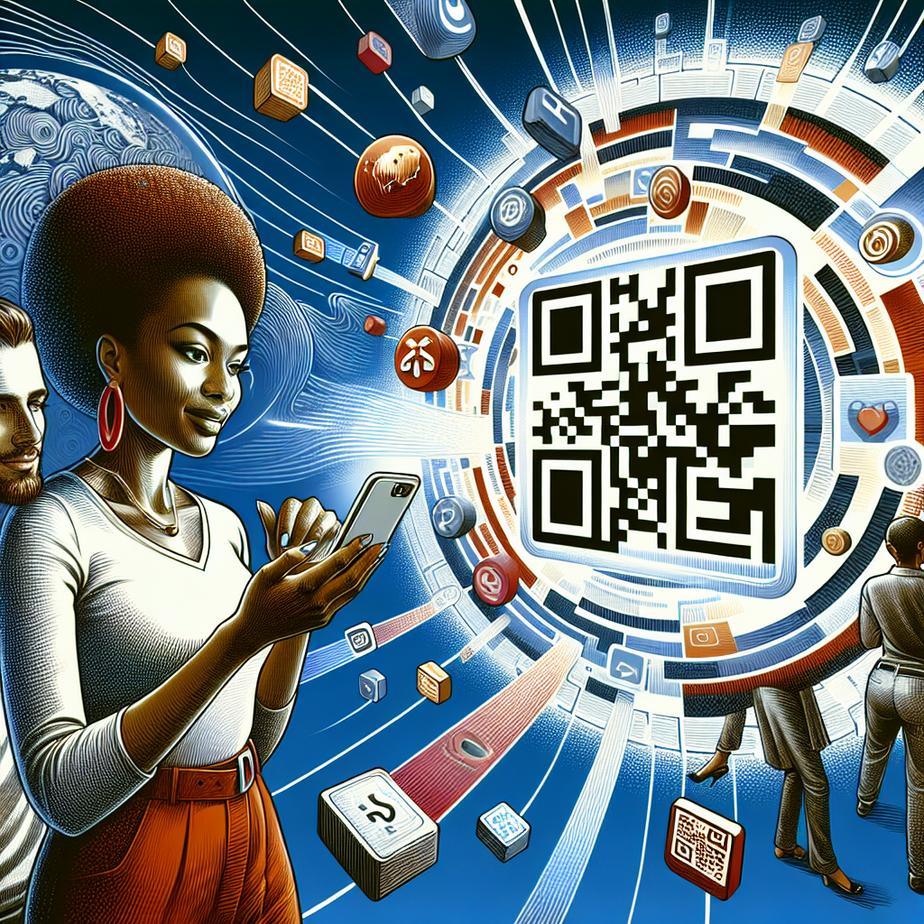

In today’s rapidly evolving business landscape, brands are seeking innovative ways to connect with their customers and build lasting trust. One increasingly popular digital transformation tool that does just that is the QR code. Far beyond their original usage for simple information sharing, QR codes now play a vital role in modern marketing strategies by boosting engagement and fostering brand loyalty.
QR codes serve as dynamic gateways that convert passive viewers into active participants. By scanning a QR code, consumers gain instant access to exclusive content, special offers, loyalty programs, or immersive brand experiences—providing an interactive layer that strengthens the connection between the brand and its audience. According to insights shared by Scanova, this instant access can help brands collect actionable customer feedback and encourage social media engagement, both of which amplify brand presence and relevance.
Moreover, integrating QR codes into product packaging or physical marketing materials streamlines information delivery. Customers no longer need to search manually for details; instead, a simple scan provides comprehensive product features, how-to guides, or event specifics. This ease of access not only improves customer satisfaction but also enhances decision-making, supporting sales growth.
Trust is paramount in any customer-brand relationship. QR codes contribute significantly to building this trust by verifying authenticity and promoting transparency. For instance, brands can embed verified product information or certifications within the QR code, reassuring customers about product quality and originality. This level of transparency, as noted by Food Distribution Guy, encourages brand loyalty and reduces the risk of counterfeit products.
Furthermore, customized branded QR codes that incorporate a company’s logo and color scheme enhance recognition and assurance. This white-labeling approach creates a consistent brand image that consumers trust, leading to higher scan rates and engagement levels. This strategy aligns with findings by QRCodeChimp, emphasizing the importance of brand-aligned visuals in customer interactions.
One of the most attractive advantages of QR codes is their cost-effectiveness. Unlike other digital tools that require significant investments, QR codes can be easily generated and incorporated into various marketing assets without hefty expenses. This makes them accessible to businesses of all sizes aiming to enhance their digital transformation journey.
Additionally, QR codes provide valuable analytics, allowing brands to track scan patterns, usage locations, and times. These data insights enable marketers to optimize campaigns in real-time, improving targeting strategies and measuring ROI with precision. The ability to link offline interactions to online behaviors deepens understanding of customer preferences and drives smarter marketing decisions.
Brands worldwide are leveraging QR codes to fuel engagement and trust effectively. For example, Taco Bell’s deployment of dynamic QR codes on taco packaging created unique interactive experiences including games and contests, significantly increasing brand interaction and customer retention. Meanwhile, Netflix incorporated QR codes on coffee cup sleeves to unlock exclusive Snapchat filters, encouraging social sharing and positive brand sentiment. Such innovative applications exemplify QR codes’ versatility as a vital component of omnichannel marketing.
To maximize the benefits of QR codes, businesses should align their deployment with clear objectives—be it driving website traffic, enhancing product transparency, or rewarding customer loyalty. Crafting an engaging call to action and ensuring the scan destination provides real value will boost uptake and trust. Integrating QR codes with other digital marketing efforts, such as social media campaigns and email marketing, creates a seamless customer journey that reinforces brand authenticity and engagement.
In conclusion, QR codes represent a powerful, scalable tool that enhances brand engagement and cultivates trust through transparency, authenticity, and interactive experiences. As part of a comprehensive digital transformation toolkit, QR codes offer businesses a unique opportunity to connect deeply with customers, enrich user experience, and drive sustained growth in an increasingly competitive marketplace.